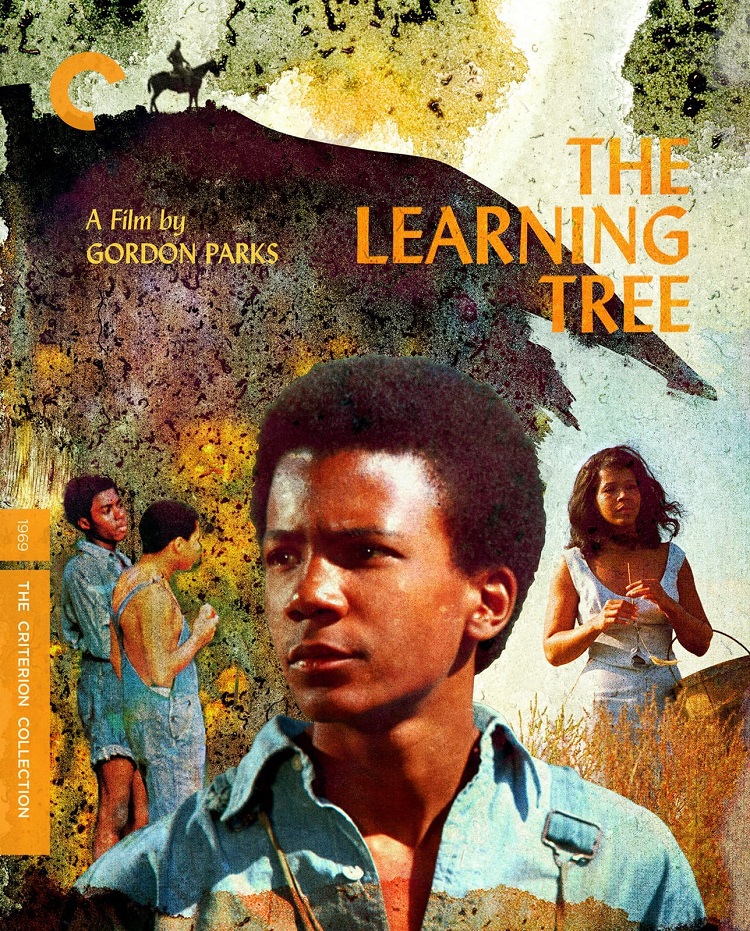
There have been so many films about growing up where characters (mostly youth) deal with first love, family issues, peer pressure, and the often harsh realities of life. However, we almost always get these portraits from the white perspective. We very rarely get coming-age stories about black adolescence, and that’s unfortunate because black teenagers go through the same hardships as white teenagers, but with more racism and threat. Legendary filmmaker-writer-producer-composer Gordon Parks interprets this in his own flavor and shows us why there needs to be more young life tales from black eyes with The Learning Tree, his 1969 directorial debut.
Adapted from his semi-autobiographical novel, the film centers on the self-reflection and journey of Newt Winger (Kyle Johnson), a 15-year-old growing up in 1920s Kansas, as he navigates life and tries to figure out who he is. He experiences first love, which ultimately goes sour after his girlfriend gets pregnant by the white son of his mother’s employer. His calm and self-controlled world view becomes compromised by his quick-tempered and trouble-making friend Marcus Savage (Alex Clarke), and there is the extreme racism surrounding him that he tries to shrug off and mostly ignore.
Things get worse for Newt when his wise and nurturing mother Sarah (Estelle Evans) dies and when testifying against Marcus’ father who kills man. This causes an even bigger rift between Newt and Marcus, as he tries to kill him. In the end, after his life is saved and Marcus is shot dead, Newt learns some very hard lessons about life and realizes that the world is always going to test you. You just have to know how to pass if you want to survive. In this case, he will always remember Sarah’s advice: The world’s not an all-good place. Not an all bad place, either. Sort of like fruit on a tree. Some good – some bad. Understand? No matter what, think of it like that till the day you die. Let it be your learning tree.“
Despite some awkward dialogue and acting, I was invested in this story and what Parks was going for. He made a film that still feels pretty relevant and unfortunately prescient. I also found it unusually poetic, especially with the beguiling cinematography by Burnett Guffey, which makes it more dreamlike. It’s something that is not usually found in coming-of-age films; it’s definitely something that makes it stand out among most movies of its ilk. You don’t get this kind of filmmaking anymore.
I understand why this is now in the Criterion Collection, and it is certainly given the treatment it deserves with a new 2K restoration, and some really good supplements, such as a new making-of documentary about the film and its artistry, featuring curator Rhea L. Combs, and filmmakers Ina Diane Archer, Ernest R. Dickerson, and Nelson George; new conversation between artist Hank Willis Thomas and art historian Deborah Willis about the Parks’ influence, moderated by film scholar Michael B. Gillespie; The Moviemakers, a featurette showing Parks on location for the film; My Father: Gordon Parks, a 1969 documentary made on the set of the film, narrated by Gordon Parks Jr., and featuring interviews with Parks Sr. and members of the cast and crew; Diary of a Harlem Family and The World of Pin Thomas, two short films from 1968 co-starring Parks, with an introduction by Combs and George; and a trailer. There is also a booklet with a 1963 Life magazine photo-essay by Parks, and an excerpt from his 2005 book A Hungry Heart: A Memoir.
If you want an understanding on why Gordon Parks is an important filmmaker, then The Learning Tree should make a good starting point. It’s flawed, but it does remain a rich portrait of not just youth during a time and place, but also of essential black filmmaking.